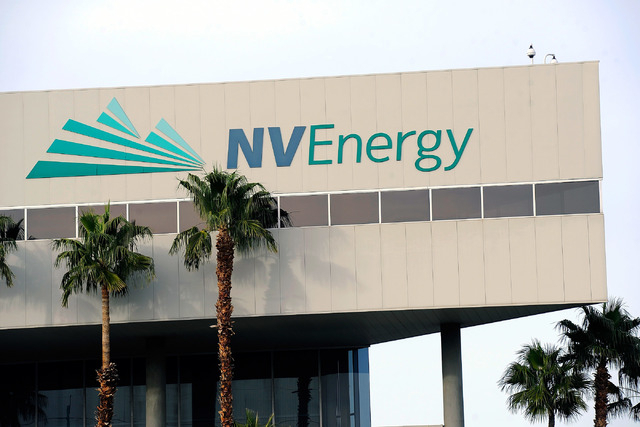Regulators could decide soon on gaming companies’ exit from Nevada Power
CARSON CITY — Draft orders posted Wednesday by state regulators would allow three major gaming companies to leave as customers of Nevada Power Co. and secure their own electricity supplies on the open market, but only upon payment collectively of $126.6 million in exit fees.
All three exit applications by MGM Resorts International, Wynn Resorts and Las Vegas Sands Corp. are on the agenda for the Nevada Public Utilities Commission for possible action Wednesday.
The proposed fees in the draft orders are $86.9 million for MGM, $15.7 million for Wynn and $23.9 million for the Sands, plus recurring fees and charges to recover certain ongoing costs that cannot currently be quantified. The PUC said in a statement that these fees are necessary because NV Energy's remaining ratepayers would otherwise be forced to pay increased rates to allow recovery of costs already incurred to provide reliable electric service to the casinos.
The impact fees ensure that the casinos remain obligated to pay for the portion of NV Energy's costs that they have caused. Additionally, the impact fees prevent the casinos from avoiding payment of their proportionate share of costs associated with Nevada's legislatively mandated energy policies, such as the Renewable Energy Program Rate, long-term renewable energy power purchase contracts required by the state's Renewable Portfolio Standard, and Senate Bill 123 costs, which include coal plant decommissioning and site remediation costs.
The three companies represent a large share of the utility's demand.
MGM, with its multiple properties, is the largest at 4.86 percent of Nevada Power's annual energy sales. MGM has said it fully intends to leave the utility, a part of NV Energy, if the application is approved.
Caesars also filed a letter of intent to leave but has not yet followed through with an exit application.
All three companies plan to leave on Feb. 1 if the applications are approved.
The gaming companies have been critical of NV Energy, part of Berkshire Hathaway, for collecting huge profits rather than lowering power rates for Nevada Power customers.
In testimony previously submitted by Mark Garrett, president of a company specializing in public utility regulation on behalf of MGM, he called Nevada Power, a subsidiary of NV Energy serving Southern Nevada, "tone deaf to the current and ongoing economic recession."
Instead of filing applications to reduce its rates to eliminate its over earnings and to bring its prices in line with market-based prices in the region, Nevada Power has continued to seek further increases even when they are clearly not in the public interest and are detrimental to the Nevada economy, he said.
Wynn Resorts also criticized the utility.
Matt Maddox, president of Wynn Resorts, earlier this year criticized NV Energy for reaping huge profits from Nevada customers and taking the profits back to parent company Berkshire Hathaway's home office in Omaha, Neb. The utility company had a 27.7 percent increase in operating profit from 2013 to 2014 and yet there have been no breaks on electricity rates to customers, he said.
Warren Buffet's Berkshire Hathaway unit, MidAmerican Energy Holdings Co., closed its acquisition of Nevada's main electric utility in 2013.
The criticisms prompted Paul Caudill, NV Energy president and chief executive, to testify on the Wynn exit application.
In written comments, Caudill said the company during the 2013-14 time cited by Maddox cut operating expenses by $59 million. He also noted the company returned $11 million in energy efficiency revenue to customers in 2012. NV Energy, which operates as Nevada Power Co. in Southern Nevada, issued a one-time $15 million credit to customers in 2013.
Caudill said the company is open to discussing changes to the current regulatory compact with all stakeholders.
There are concerns that the departure of these large companies could mean higher rates for average utility customers who have no option to leave. Residential customers can opt to participate in the rooftop-solar program under a net metering law, but that program is also under review by the PUC and could change. A decision on a new tariff for net metering customers is expected to be approved in late December.
The intent of the 2001 law approved by the Nevada Legislature to allow companies to exit the utility as retail customers was intended to alleviate pressure on Nevada Power and Sierra Pacific, now part of NV Energy, during an energy crisis. The circumstances behind its passage no longer exist.
The first application to leave in recent years, filed by the data storage company Switch, was rejected by the commission. Switch later struck a deal with Nevada Power to remain for at least the next three years. Its exit fee was estimated at $27 million.
Contact Sean Whaley at swhaley@reviewjournal.com or 775-687-3900. Find him on Twitter: @seanw801.




















